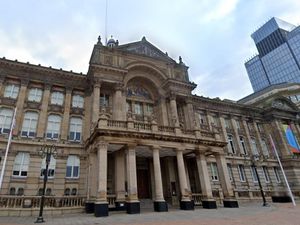Affordable travel for city's most vulnerable and disabled children axed by cash-strapped council
Parents of teenagers with special needs will be told to pay more to get them to college or sixth form – and the often-vulnerable students will have to make the journeys themselves.

Cash-strapped Birmingham City Council has confirmed details of transport cuts to its special needs transport budget – and those aged 16 to 18 will bear the brunt.
From September, taxi and minibus services, commonly used to transport pupils to special needs schools which can be miles from their homes, will not routinely be offered to those of college and sixth form age. The service will remain for younger children.
Support will be provided through a personal transport budget (PTB) or a pass for use on public transport. But parents will be told to pay more, with their contribution – deducted from the budget – increasing from £780 to £1,028 per academic year.
Low-income families will still pay £390 a year towards their travel arrangements. “We acknowledge these changes will be difficult for some families so have given as much notice as possible of the changes,” the council said in an email to families.
A public consultation on the review of the council’s travel assistance policy was launched earlier this year, with the council admitting its proposal “involves a reduction on what is offered”.
“That is not something the council wishes to do but rather considers itself driven to by the current financial situation,” it added.
The consultation said students facing transportation challenges may experience increased stress and fatigue – potentially impacting their academic performance.
And it said longer and more arduous commutes could lead to absenteeism and reduced focus.
The council also admitted the proposed increase in the parental contribution may impose a “significant financial burden” – especially for families with more than one child requiring travel assistance.
“This added expense could force families to make difficult choices, potentially sacrificing other essential needs to cover transportation costs,” it continued.
“The increased financial obligation for post-16 travel assistance might discourage students from pursuing higher education, particularly if the added costs are perceived as insurmountable.
“This could contribute to a decline in the number of students continuing their studies beyond compulsory education.”
The changes have already attracted backlash and concern, with one Conservative councillor describing them as a “slap in the face” for parents of children with special educational needs.
“Every child, regardless of disability, should be given the opportunity and encouragement to thrive in educational attainment,” said Coun Adam Higgs, shadow cabinet member for Children, Young People and Families.
“The council should be doing all it can to ensure they can access the most suitable setting for their own needs.”
A Birmingham City Council cabinet meeting last month heard children’s services had to make significant savings amid the council’s bleak predicament.
“We’ve had to look at the travel assistant policy in order to deliver what’s required of us,” cabinet member Karen McCarthy said. “We will retain some provision for post-16 travel such as personal travel budgets.”
She later added: “Other authorities have gone for a much more drastic approach and I take some comfort from the fact we have been able to retain provision.”
“This is a very emotive subject on all sorts of fronts for families and carers,” Coun Jayne Francis said during the meeting. “But I was pleased to see we’re still providing the same level of support to children of compulsory school age and for our young people aged 19 plus.”
The council’s worrying financial situation is down to Birmingham-specific issues, such as an equal pay fiasco and the disastrous implementation of a new IT and finance system, as well as the rising demand for services and funding cuts.
Council leader John Cotton has previously criticised the Conservative government and argued councils across the country faced a perfect storm of smaller budgets and higher costs.
Conservative politicians have pointed the finger at the mistakes made by the Labour council administration, with Prime Minister Rishi Sunak insisting the authority had mismanaged its finances.





